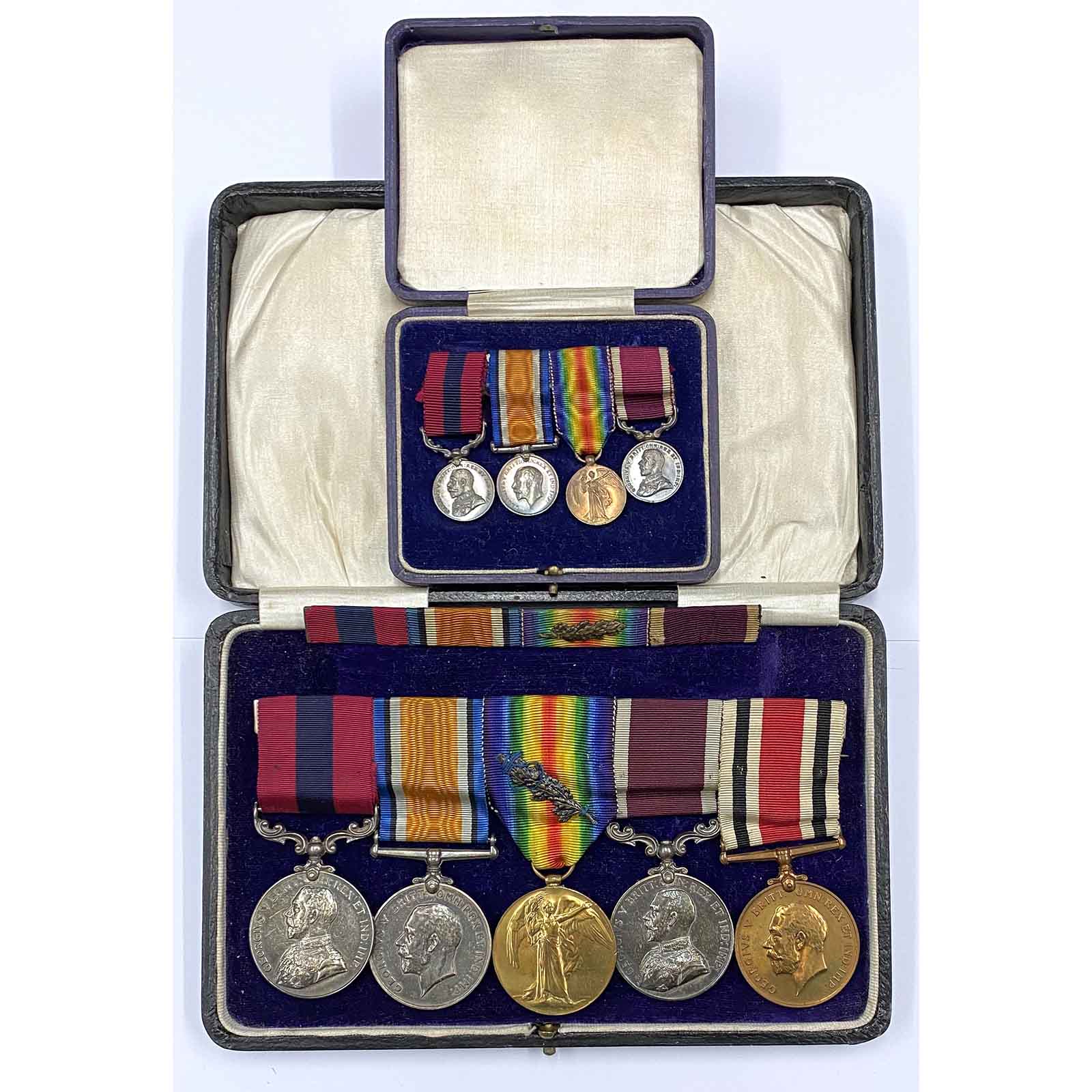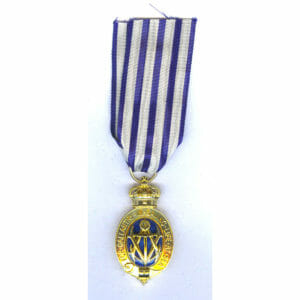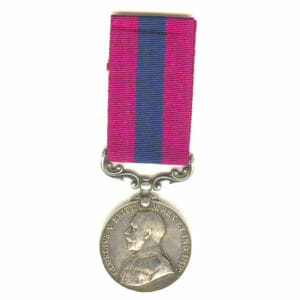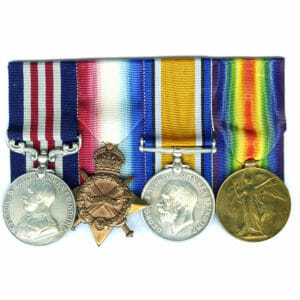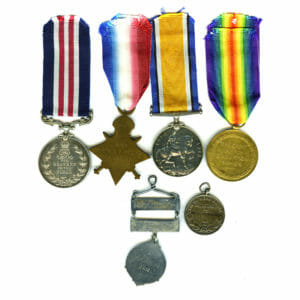Description
Distinguished Conduct Medal, GV, British War and Victory Medal, Army LS and GC, Special Constabulary, GV Coinage Head, Colour Sergeant Arthur Kerry, Royal Fusiliers, attached N.N.R., W.A.F.F., served the entire war from August 1914 until 1918 in Nigeria and German East Africa with the North Nigeria Regiment, he additionally commanded the patrol of the W.A.F.F. that was sent to suppress the Bussa Rebellion of 1915 in Nigeria.
Arthur Kerry was awarded the D.C.M. as Colour Sergeant in the West African Frontier Force, Nigeria Regiment, for the East Africa Theatre, announced in the London Gazette on 25th February 1920, the recommendation reading:
“For conspicuous gallantry and devotion to duty at Namupa Mission on the 16th October 1917. When his company was ordered to retire, he covered the retirement with his machine gun. Later he was wounded in the knee, and seeing the Intelligence Officer was also severely wounded, he, at risk of both being captured, carried the officer 100 yards back until a native sergeant and private came to his help.”
Medals in a fitted case with matching silk ribbon bar, also another cased miniature group of excellent quality, made circa 1920s before his award of the Special Constabulary Medal.
Medals all named to the Royal Fusiliers, his parent regiment when he earned his D.C.M. and WW1 Pair for his service in Nigeria, with the Army L.S. and G.C. showing his “D.C.M.” post nominals.
Arthur Kerry was born during 1889 in Norfolk, he enlisted on 13th March 1907 with 5th Battalion, Royal Fusiliers.
Served in Nigeria from 4th August 1914 to 10th December 1916.
German East Africa between 11th December 1916 to 14th February 1918.
Nigeria from 15th February 1918 until his discharge, having completed 21 years of service.
A entry in the Book Colonial West Africa: Collected Essays by Michael Crowder, on the Imposition of the Native Authority System in Bussa, regarding Sergeant Kerry leading a patrol which put down the Bussa Rebellion in June 1915:
“On 23rd the contingent engaged the rebels at Bussa and then Garafini. In both places they met considerable resistance, and Colour Sergeant Kerry, in charge of the WAFF, wrote in his report on the Patrol that ‘if the troops had taken a defeat the whole of the Borgawa would have been up in arms, as they were all ready to take up arms’. In Garafini 9 rebels were killed, and in Bussa ten, with no losses to the Patrol – the arrows of the rebels, according to Kerry, the British N.C.O. ‘being extraordinarily devoid of aim’. From Bussa the Patrol marched south to Kaiama, where many sympathetic to the rebels fled across the border into Southern Nigeria. After protracted negotiations with the authorities of Oyo Province, 6 reingleaders were handed over to the Patrol. The Patrol marched through Borgu showing the flag and did not return to Yelwa until 6th July. Sabukki, however, eluded them.”
Kerry’s War Diary with detailed accounts of the British Operations against Rebels in Bussa during 1915 and other actions is held by the National Archives, Kaduna, Nigeria.
He embarked at Lagos on S.S. Berwick Castle 15th November 1916, disembarking at Dar-es-Salaam on 11th December 1916 beginning his official war service in German East Africa, which is today Tanzania.
Only 2 months later he was hospitalised, having become dangerously ill with Blackwater Fever at Mkindu.
He was severely wounded in action at Mahiwa on 16th October 1917, being admitted to hospital, he had received a gunshot wound to the right knee.
He was additionally mentioned in despatches by General Van Deventer, announced in the Nigeria Gazette on 10th October 1918.
His various promotions from his service papers:
Appointed Lance Corporal 30/05/1908, Corporal 27/10/1910, Lance Sergeant 11/03/1912, R/Sergeant 14/10/1912, 1/R/Sergeant 30/03/1913, Colour Sergeant 15/1/1914, a R. Sergeant 10/11/1916, Appointed Regimental Sergeant Major 1/1/1918, Warrant Officer Class I.I. 30/03/1920.
In his retirement he moved back home to Aylsham, Norfolk, becoming a Special Constable and Shopkeeper, Tobacconist and Confectioner.
